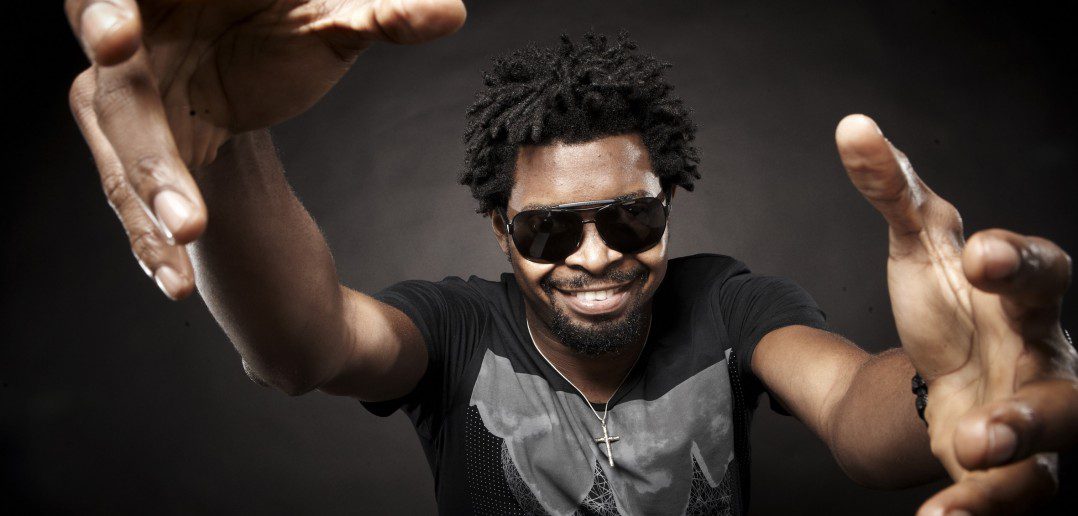Photo: Nigerian stand-up comedian Basketmouth, host of MTV’s “Big Friday Show”
“We made the decision to enter Africa based on several key factors: long-term economic development prospects and the high growth rates in the key advertising markets, as well as increasing economic, regulatory and political stability that create a more attractive investment climate,” explains Joseph Hundah, CEO of MTG Africa, a subsidiary of Swedish media giant Modern Times Group.
MTG’s been investing in sub-Saharan Africa since 2007, when it received the license for Viasatl in Ghana, its first commercial free-to-air terrestrial network outside Europe. Its channels are carried on digital terrestrial pay-TV services in Nigeria, Uganda and Tanzania by StarTimes, the China-based pay-TV operator.
StarTimes itself is present in 10 African states, and enjoys over 200,000 paying subscribers. It’s pledged to invest $100m in broadcast infrastructure in Uganda alone.
Another foreign player in Africa is CCTV, also Chinese in origin. It’s begun broadcasting original African content from Nairobi, the capital of Kenya, for its CCTV news channel. Argentine network Telefe has also expressed intentions to target Africa with its telenovela catalogues.
Digital TV Research predicts that sub-Saharan Africa (the 50-plus territories on the continent, apart from Arab-speaking Algeria, Libya, Egypt, Morocco, Tunisia, and Sudan in North Africa) will have about 50 million TV homes by 2017, compared with 2011’s 38 million. But this forecast represents just 30% of total households, indicating the promise of more growth.
MTV Networks Africa, a subsidiary of US media mogul Viacom, hosts numerous channels, including MTV and Comedy Central, in North Africa. It distributes networks and popular programmes to other markets, as well as producing original short-form content for the just-launched Comedy Central Africa, with plans to produce long-term content over the next few months.
Branded programming is also joining the game. Top Jock, a DJ-search event and reality TV show, co-produced by MTVN Africa and McDonald’s, is one such example.
“By partnering with MTV, McDonald’s gets high quality content and TV production. Many other brands are seeking this kind of association to create content for TV” as well as web and mobile, says MTVN Africa‘s senior vice president/managing director Alex Okosi.
The Discovery Channel, another US-based giant, currently hosts six channels on pan-African pay-TV platform DStv, including TLC, targeted to women, and ID: Investigation Discovery, a channel dedicated to crime documentaries.
“Having available rights for Africa is nothing special, so you need to create an added value, be it flexibility in business, operating on the ground, or bringing African knowledge to the table,” says Gerbrig Blanksma, senior sales executive of Amsterdam-based Off the Fence.
It’s Africa’s TV companies that set the benchmarks for international content producers. M-Net, part of South Africa’s MultiChoice, launched the continent’s first terrestrial pay-TV channel in 1986. At the start, customers were predominantly affluent and white, according to M-Net. Today it’s a major cross-media distribution platform with over 30 channels and numerous international services, reaching over 3 million subscribers in 50 African markets. Through its DStv brand, it provides mobile broadcast service (DStv Mobile), catch-up TV (DStv On Demand) and video on-demand (DStv Box Office).
It also produces a diversity of original content. This year at MIPTV it launched The Wild, “the first quality telenovela to come from Africa,” according to Mike Dearham, head of sales and library.
Next year M-Net will penetrate streaming video with the African Film Library. It will launch with 110 award-winning African films in March, then expand to another 700 titles.
Until recently, Africa’s various countries had few ways to sell programmes to each other. Today African producers sell content everywhere. “Content distributors have learned over the last 15 years how to work with emerging markets,” says Patrick Jucaud-Zuchowicki, GM of Basic Lead, which hosts several Africa-based trade shows. “If you’ve the right content, you will always find someone to pay with cash.”
“Nollywood” films, Nigerian in origin, have begun to enjoy international demand through the ad-funded Irokotv, the Nollywood answer to Netflix, aimed at the global African diaspora. It had 152 million YouTube views last year and enabled Irokotv to overcome piracy, a blight on African film-making for years.
With all that said, working in Africa nonetheless presents unique challenges. The political, religious and military conflicts that have characterised these regions remain: the Ivory Coast civil war, civil disturbances in Somalia, clashes between North and South Sudan, and attacks by Islamist militants in Nigeria are just a few examples.
And the transition from analogue to digital terrestrial broadcast signals hasn’t gone smoothly. The switchover deadline is 2015, but 35 African countries have yet to announce it at all.
Mauritius is the only territory to have completed the transition, and pilots are continuing in South Africa, Burundi, the Democratic Republic of Congo, and Angola. Task forces have been set up in Senegal, Mali, Cameroon and Ghana to examine how the transition will be implemented.
But the overall view remains optimistic. “10 years ago, the internet was used by a few thousand people per country. Now, there are 3.8 million Facebook users in Nigeria alone, and more than one million in Kenya,” Dearham points out. He also notes that nine international fibre cables will be installed across the continent by year’s end, which will yield faster internet download speeds.
Lest we forget, one of the greatest ways in which Africa has stimulated the popular imagination is the sense of what is possible there. Caleb Weinstein, senior vice president/general manager of distribution at Discovery Networks – Europe, Middle East & Africa, is especially excited about mobile TV. “There is a transition period between now and 2015 when all African platforms will be digital. African viewers are busy buying new devices such as set-top boxes and HDTV sets.”
But that doesn’t mean it’s time to relinquish efforts. “Our view is that players are unlikely to win in this market without working with other parts of the value chain, which is where content providers like Discovery are well positioned as valued partners in the emergence of new technologies. Because without great content, the technology means nothing,” he adds.
This feature was originally published in the MIPTV 2012 News, and has been edited here by Angela Natividad.




